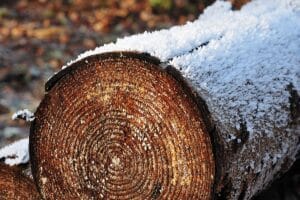In the forest industry, managers and investors continue to balance short term production needs with long-term capital investment decisions. In late September and October 2020, our team communicated with 154 forest industry professionals in the U.S. and Canada, including forestry consultants, wood procurement managers, timberland investors, industry executives, and recruiters tracking our industry. A driving theme for the November Forisk Market Bulletin: firms and managers are focused on putting people and capital to work.
Meanwhile investors continue to look hard at the risk and return associated with holding timberlands, and other real estate classes, in their portfolios.
Timberland is Increasingly Productive
While Mark Twain said, “Buy land, they’re not making it anymore,” innovators in economic development and agriculture spent decades working around this constraint. Consider fertilizers, highways and landfills. Consider office towers, improved seeds and urban sprawl. Consider sewage treatment plants, strip malls and crematoriums. Each of these strategies helps us do more on fewer acres or take advantage of previously neglected acres more productively.
Forestry also includes numerous advances and efforts to convert average or constrained strips of turf into high-performing cash-flowing assets. The ability to get more production from fewer acres helps us move resources across space and time, shifting them to when and where they are needed most.
Timberland Risk and Capital Markets
Capital markets, like those for stocks and bonds, help bring savers and borrows together efficiently. These markets are, to quote The Economist magazine, “the least bad way to set prices and to allocate scarce resources.” Equity markets for shares of companies and bond markets, which trade debt, move financial resources across space and time to where they are most needed.
From the perspective of risk, any effort to transmit resources, whether by ship or carrier pigeon or bitcoin, entails uncertainty. In forestry, we assess the frequency and severity of different risks based on everything we know at a given point in time. What will our timber prices and cash flows look like given the uncertainty of markets, weather and fire? In financial markets, all asset prices, in a way, depend on investors’ perceptions of uncertainty and the assumed implications for cash flows relative to all other potential investments available to them.
For many investors, bonds, which are tradeable loans, provide the benchmark asset. These fixed-income securities offer regular income through interest payments, and their price accounts for key macro factors affecting all investors, such as inflation and interest rates. And when investors start looking hard at timberlands, they keep the yield of bonds, the return stated as a percentage of the bond’s market price, in their peripheral vision.
This content may not be used or reproduced in any manner whatsoever, in part or in whole, without written permission of LANDTHINK. Use of this content without permission is a violation of federal copyright law. The articles, posts, comments, opinions and information provided by LANDTHINK are for informational and research purposes only and DOES NOT substitute or coincide with the advice of an attorney, accountant, real estate broker or any other licensed real estate professional. LANDTHINK strongly advises visitors and readers to seek their own professional guidance and advice related to buying, investing in or selling real estate.










Add Comment